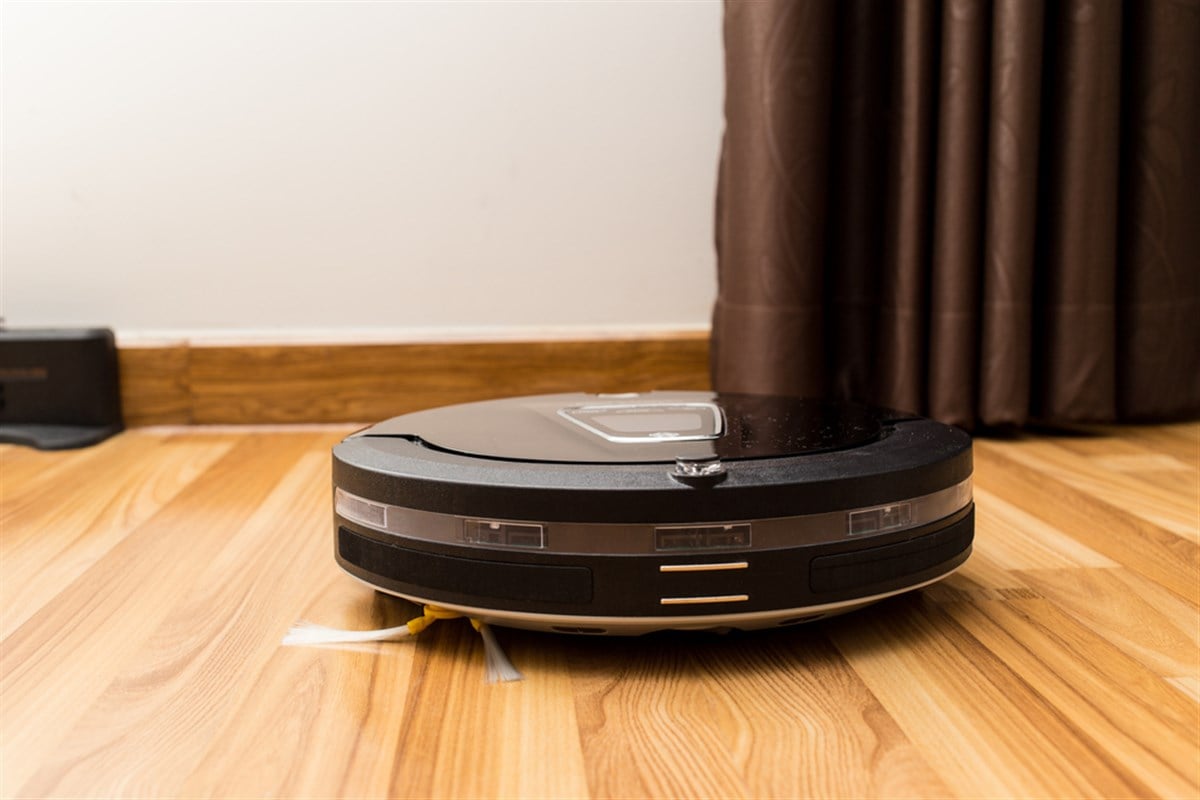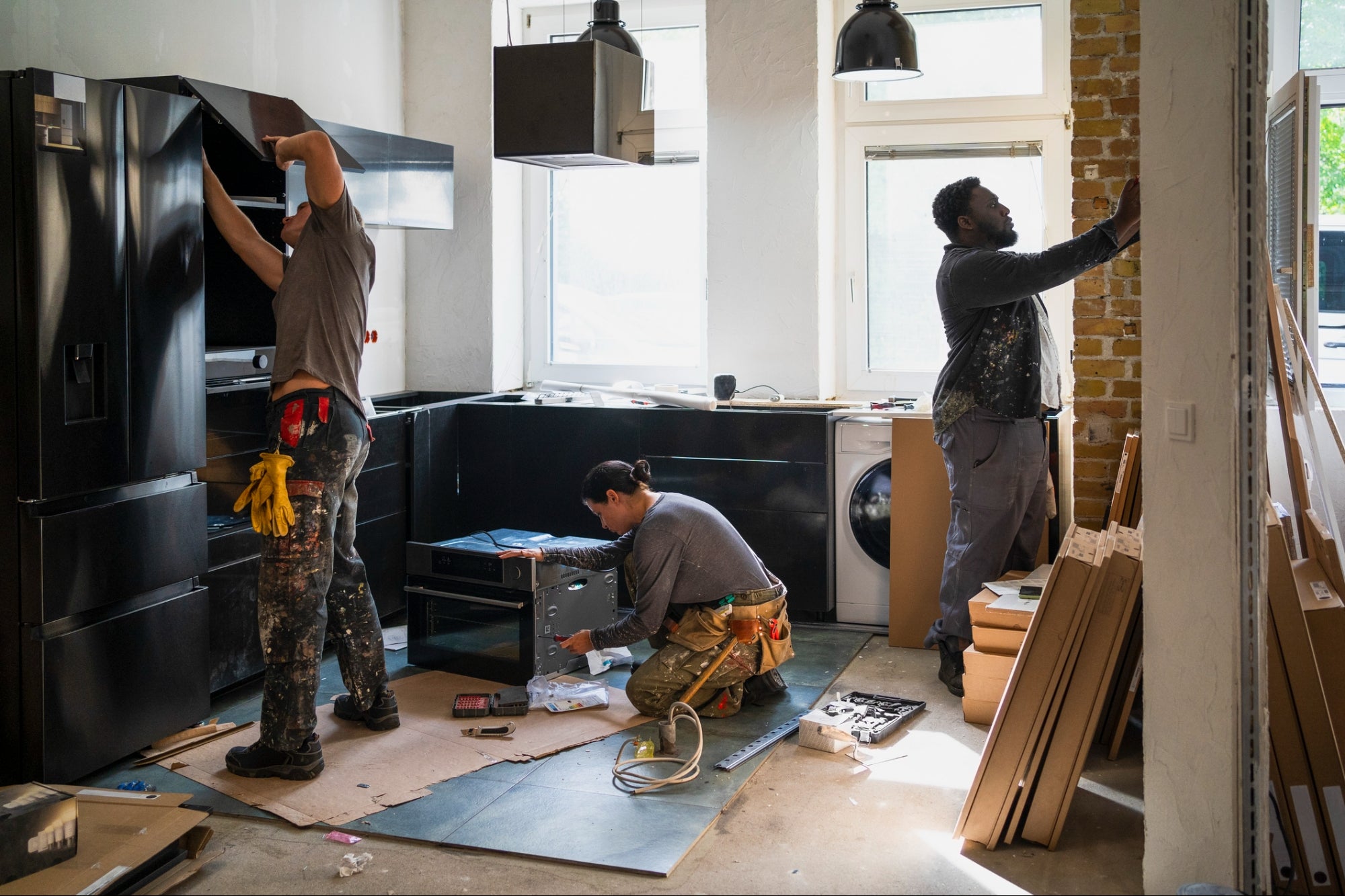iRobot Battles Regulatory Seas and Amazon's Bid iRobot, a leader in consumer robotics, faces stock volatility, regulatory hurdles, Amazon's acquisition bid, rising costs and controversies.
By Jeffrey Neal Johnson •

This story originally appeared on MarketBeat

iRobot (NASDAQ: IRBT) is a trailblazer in consumer robotics renowned for its Roomba vacuum cleaners and Braava mopping robots. The company is currently stuck in a web of regulatory hurdles and a pending acquisition bid by tech giant Amazon. As the company navigates these complex challenges, its ability to adapt and innovate will determine its ultimate fate.
Stock market fluctuations: Riding the rollercoaster
iRobot's stock market journey has been a turbulent one, mirroring the broader market's volatility, the volatility in the technology sector and the company's complex regulatory and acquisition situation. The company's shares have experienced significant swings in value, with periods of rapid growth followed by sharp declines.
In early 2023, iRobot's stock price surged by over 50% in anticipation of the potential acquisition by Amazon (NASDAQ: AMZN). However, as regulatory hurdles emerged, casting doubt on the deal's completion, the stock price plummeted by nearly 30%. This volatility continued throughout the year, with the stock price fluctuating between $28 and $45 per share.
The recent market downturn has further impacted iRobot's stock performance. In the short term, iRobot's stock price is likely to remain volatile as investors weigh the potential outcomes of the Amazon acquisition and the company's ability to navigate the current market conditions. However, iRobot's long-term success will ultimately depend on its ability to innovate, adapt, and execute its strategic vision.
Amazon's acquisition ripples: Uncertain shores ahead
In August 2022, iRobot's future took an unexpected turn when e-commerce giant Amazon announced plans to acquire the company for an initial bid of $61 per share, valuing iRobot at approximately $1.7 billion. This proposed acquisition sent shockwaves through the consumer robotics industry, with many speculating on the potential implications for both companies.
Initially, the deal appeared to be a win-win for both parties. Amazon, seeking to expand its footprint in the smart home market, viewed iRobot's Roomba vacuum cleaners and Braava mopping robots as valuable additions to its portfolio of connected devices. iRobot, on the other hand, saw the acquisition as an opportunity to leverage Amazon's vast resources and expertise to reach a wider audience and accelerate its product development efforts.
However, the path to closing the deal was far from smooth. Regulatory scrutiny quickly emerged, particularly in the European Union, where concerns were raised about Amazon's potential dominance in the smart home market. These concerns prompted Amazon to revise its bid downward to $51.75 per share, a move that reflected the uncertainty surrounding the deal's approval.
The protracted negotiation period has plunged iRobot into a sea of uncertainty, leaving investors and the market on edge. The company's stock price has been volatile, reflecting the ongoing speculation about the deal's fate. While some analysts remain optimistic about the potential synergies between Amazon and iRobot, others caution that the regulatory hurdles and potential antitrust challenges could derail the deal altogether.
The future of iRobot's acquisition by Amazon remains uncertain. While both companies have expressed their commitment to closing the deal, the regulatory landscape remains complex, and the final outcome is far from clear. As the company navigates these uncertain waters, its ability to maintain its competitive edge and continue to innovate will be crucial to its long-term success, regardless of whether the Amazon acquisition ultimately comes to fruition.
Regulatory winds of change: A glimmer of hope
Amidst this turbulence, glimmers of hope emerge. Reports suggest a potential positive turn in regulatory terrain. Despite initial concerns, the Amazon-iRobot deal appears to be steering towards unconditional approval from the European Union's antitrust authorities, hinting at a potential resolution to this prolonged regulatory saga.
Rising costs and controversies: Adding to the strain
Amidst the regulatory complexities and the impending acquisition bid by Amazon, iRobot finds itself grappling with additional challenges that are further straining its financial stability and tarnishing its public image.
On the financial front, iRobot is facing a relentless surge in raw material and labor costs. The global supply chain disruptions have exacerbated these cost pressures, making it increasingly expensive for the company to procure the components needed to manufacture its products. This has led to a squeeze on iRobot's profitability, with the company struggling to maintain its margins in the face of rising expenses.
To compound matters, iRobot has found itself embroiled in controversies surrounding its data collection practices. In December 2022, a report emerged alleging that the company had been collecting and storing detailed images of homes captured by its Roomba vacuum cleaners without the explicit consent of the homeowners. These revelations sparked concerns about privacy and ethical implications, as the images could potentially be used for AI training purposes without the knowledge or control of those whose homes were photographed.
The data privacy controversy has cast a shadow over iRobot's reputation and raised questions about the company's commitment to protecting customer privacy. It has also prompted calls for greater transparency and accountability in the collection and use of consumer data.
As iRobot navigates these challenges, it faces the daunting task of addressing both the financial pressures and the reputational damage caused by the data privacy controversy. The company will need to implement robust data protection measures and regain the trust of its customers while also finding ways to mitigate the impact of rising costs on its profitability. The success of iRobot in overcoming these challenges will be crucial to its long-term viability and its ability to maintain its position as a leader in the consumer robotics industry.
Competitive currents
The robot vacuum cleaner market has become increasingly turbulent for iRobot, as formidable competitors like Amazon, SharkNinja, and Ecovacs have emerged. This heightened competition has impacted iRobot's pricing strategies, profit margins, and overall market share.
To remain competitive, iRobot has been forced to lower prices and invest heavily in research and development. The company must continue innovating and carefully managing its costs to ensure financial sustainability.
The future of iRobot will depend on its ability to navigate these challenging currents successfully.










